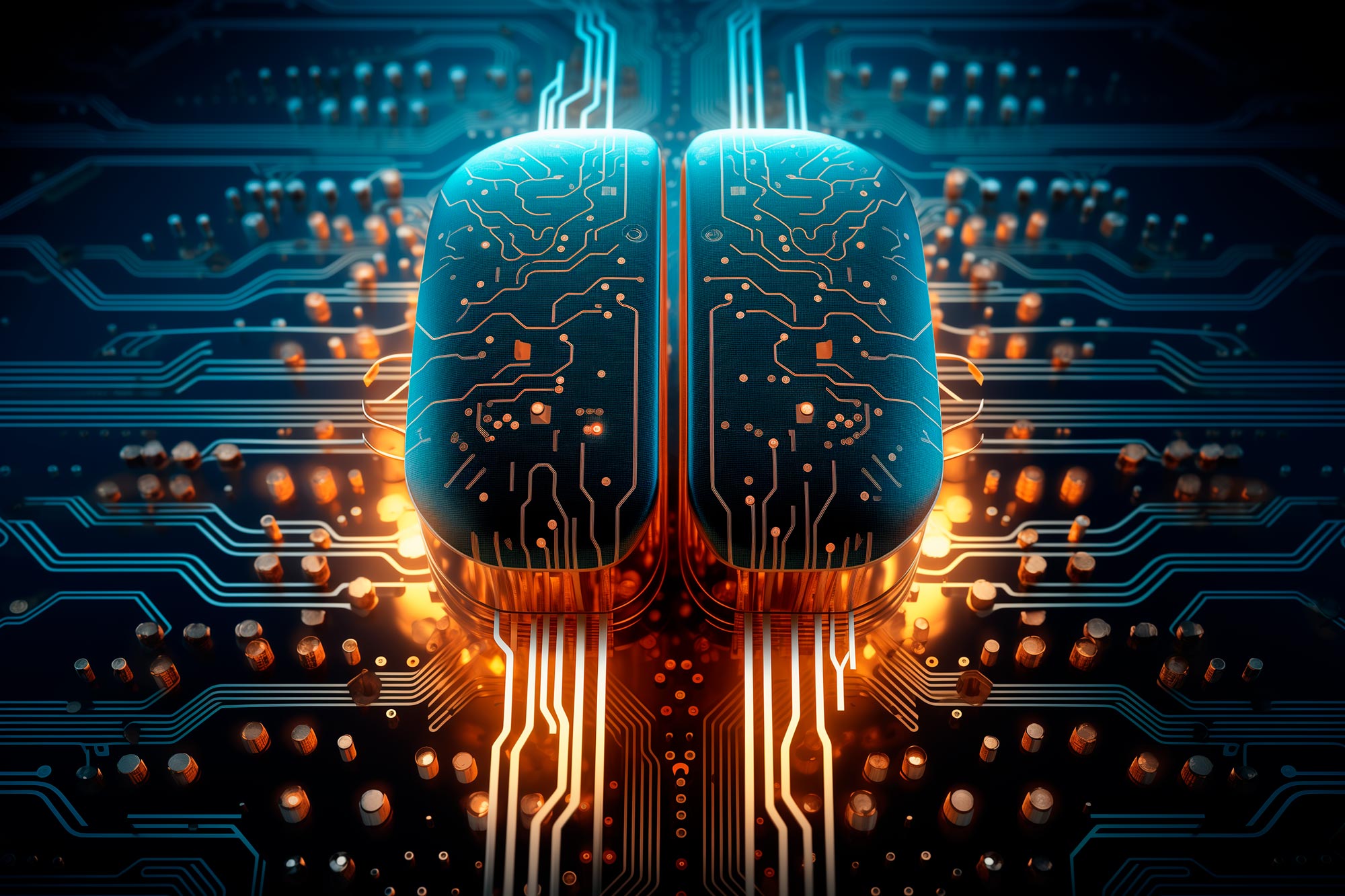
Innovative new chip technology integrates data storage and processing, significantly boosting efficiency and performance. Inspired by the human brain, these chips, expected to be market-ready in three to five years, require interdisciplinary collaboration to meet industry security standards.
Hussam Amrouch has developed an AI-ready architecture that is twice as powerful as comparable in-memory computing approaches. As reported in the journal Nature, the professor at the Technical University of Munich (TUM) applies a new computational paradigm using special circuits known as ferroelectric field effect transistors (FeFETs). Within a few years, this could prove useful for generative AI, deep learning algorithms, and robotic applications.
The basic idea is simple: unlike previous chips, where only calculations were carried out on transistors, they are now the location of data storage as well. That saves time and energy.
“As a result, the performance of the chips is also boosted,” says Hussam Amrouch, a professor of AI processor design at the Technical University of Munich (TUM).
The transistors on which he performs calculations and stores data measure just 28 nanometers, with millions of them placed on each of the new AI chips. The chips of the future will have to be faster and more efficient than earlier ones. Consequently, they cannot heat up as quickly. This is essential if they are to support such applications as real-time calculations when a drone is in flight, for example.
“Tasks like this are extremely complex and energy-hungry for a computer,” explains the professor.
Prof. Hussam Amrouch develops powerful AI Chip for energy-intensive applications. Credit: Andreas Heddergott / TUM
Efficiency and Power in Modern Chips
These key requirements for a chip are summed up mathematically by the parameter TOPS/W: “tera-operations per second per watt”. This can be seen as the currency for the chips of the future. The question is how many trillion operations (TOP) a processor can perform per second (S) when provided with one watt (W) of power.
The new AI chip, developed in a collaboration between Bosch and Fraunhofer IMPS and supported in the production process by the US company GlobalFoundries, can deliver 885 TOPS/W. This makes it twice as powerful as comparable AI chips, including a MRAM chip by Samsung. CMOS chips, which are now commonly used, operate in the range of 10–20 TOPS/W. This is demonstrated in results recently published in Nature.
Human Brain-Inspired Chip Architecture
The researchers borrowed the principle of modern chip architecture from humans. “In the brain, neurons handle the processing of signals, while synapses are capable of remembering this information,” says Amrouch, describing how people are able to learn and recall complex interrelationships.
To do this, the chip uses “ferroelectric” (FeFET) transistors. These are electronic switches that incorporate special additional characteristics (reversal of poles when a voltage is applied) and can store information even when cut off from the power source. In addition, they guarantee the simultaneous storage and processing of data within the transistors.
“Now we can build highly efficient chipsets that can be used for such applications as deep learning, generative AI or robotics, for example where data have to be processed where they are generated,” believes Amrouch.
Path to Market-Ready Chips
The goal is to use the chip to run deep learning algorithms, recognize objects in space, or process data from drones in flight with no time lag. However, the professor from the integrated Munich Institute of Robotics and Machine Intelligence (MIRMI) at TUM believes that it will be a few years before this is achieved. He thinks that it will be three to five years, at the soonest, before the first in-memory chips suitable for real-world applications become available.
One reason for this, among others, lies in the security requirements of industry. Before a technology of this kind can be used in the automotive industry, for example, it is not enough for it to function reliably. It also has to meet the specific criteria of the sector.
“This again highlights the importance of interdisciplinary collaboration with researchers from various disciplines such as computer science, informatics and electrical engineering,” says the hardware expert Amrouch. He sees this as a special strength of MIRMI.
Reference: “First demonstration of in-memory computing crossbar using multi-level Cell FeFET” by Taha Soliman, Swetaki Chatterjee, Nellie Laleni, Franz Müller, Tobias Kirchner, Norbert Wehn, Thomas Kämpfe, Yogesh Singh Chauhan and Hussam Amrouch, 10 October 2023, Nature Communications.
DOI: 10.1038/s41467-023-42110-y
>>> Read full article>>>
Copyright for syndicated content belongs to the linked Source : SciTechDaily – https://scitechdaily.com/twice-as-powerful-next-gen-ai-chip-mimics-human-brain-for-power-savings/